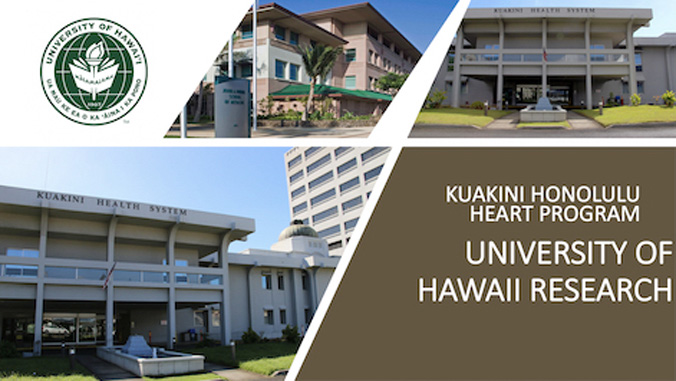
A University of Hawaiʻi at Mānoa study of data from Kuakini Medical Center’s Honolulu Heart Program suggests pesticides may play a role in the development of cardiovascular disease. The study, published in the Journal of the American Heart Association (JAHA), finds that occupational exposure to high levels of pesticides may raise the risk of heart disease and stroke, even in generally healthy men.
“This study emphasizes the importance of using personal protective equipment during exposure to pesticides on the job and the importance of documenting occupational exposure to pesticides in medical records, as well as controlling standard heart disease risk factors,” said Beatriz L. Rodriguez, co-author of the study and professor of geriatric medicine at the John A. Burns School of Medicine (JABSOM).
The Kuakini Honolulu Heart Program enrolled more than 8,000 Japanese American men on Oʻahu between 1965 and 1968 for the study. The group has since undergone multiple examinations, tracking all causes of death and some disease outcomes.
Pesticides have a long half-life, so health effects may occur years after exposure. By analyzing different time lags, the researchers found that the maximum effect of exposure on heart disease and stroke risk was during the first 10 years. Pesticide exposure has previously been linked to the development of Alzheimer’s disease, dementia, cancer and Parkinson’s disease in Kuakini Honolulu Heart Program studies.
The study was conducted only in men of Japanese descent, however, similar results were found in Taiwan for high pesticide exposure in middle age. The results from this study may not apply to women or other races.
“One class of pesticides may give women heart attacks but not men and other pesticides may give men heart disease but not women. Hormones may also play a role in the impact of pesticide exposure and the development of cardiovascular disease,” said Zara Berg, co-author of the study.
For more on the study, go to the JABSOM and Kuakini Honolulu Heart Program websites.
—By Tina Shelton

